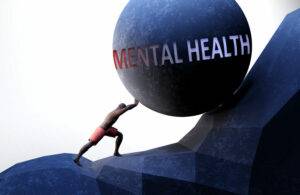According to the statistical data collected by World Health Organization (WHO), somewhere around 76 million people across the world suffer from some or other disorder which can be traced to alcohol abuse. With an estimated 100,000 deaths attributed to alcohol consumption every year, the scenario is not quite pleasant in the United States either.
More importantly, this figure doesn’t just include deaths as a result of some alcohol-related disorders – such as cirrhosis of the liver and cancer, but it also includes indirect causes related to alcohol. Tragic things can happen such as driving accidents, homicides, etc. Even though information on side effects of alcohol abuse is available in plenty, most often people are either too busy or too careless to get into the details of this matter.
What is Alcohol Abuse?
Alcohol abuse tends to differ from moderate drinking, considering the fact that it is the practice of drinking alcohol to an extent where it causes numerous social problems as well as health issues in the person’s life. Even though alcohol abuse is often referred to as ‘alcoholism’, this is not a technical term because several definitions exist this term – some of which are not at all compatible with the alcohol abuse definition.
Basically, alcohol abuse is defined as the practice of drinking alcoholic beverages without any restraint in such a manner that it eventually results in problems in the person’s overall health as well as interpersonal relationships and professional life. In DSM-IV (Diagnostic and Statistical Manual of Mental Disorders), alcohol abuse is defined as a “psychiatric diagnosis describing the recurring use of alcoholic beverages despite negative consequences.”
Side Effects of Alcohol Abuse
Even though a person who resorts to alcohol abuse won’t recognize the symptoms of this condition even after they get obvious with time, health professionals have come up with a list of some negative side effects of the same which are likely to start surfacing when you go beyond the concept of moderate drinking. In a broad sense, the negative effects of alcohol consumption can be categorized into two groups.
The first is the short-term effects which start surfacing when the person is under the influence of alcohol which could go on for 48-72 hours after that. Also, there are long-term effects which are associated with alcohol abuse for a prolonged period. Given below are the details of various alcohol abuse side effects with reference to mental and physical health, and personal and professional life.
Side Effects on Mental and Physical Health
The side effects of alcohol on a person’s health – both physical and mental, exist in a great deal. Alcohol is known to have adverse effects on the cells of our brain which are associated with cognitive abilities. A result, the person can face difficulty in coordination, inability to concentrate, and impaired judgment.
In the long term, this damage can result in impairment of brain growth and function, and eventually trigger neuropsychiatric and cognitive disorders. Other than hallucinations and delusions, the person can also suffer from severe insomnia as a result of prolonged alcohol abuse. The chances of the person suffering from depressive disorders cannot be ruled out either.
The fact that the World Health Organization’s International Agency for Research on Cancer considers alcohol to be a carcinogen makes alcohol side effects even more evident. When alcohol gets mixed in the bloodstream, it can trigger a drastic fall in the individual’s blood pressure and pulse rate. In the long term, alcohol abuse affects the digestive system, and triggers health problems such as liver cirrhosis and pancreatitis – which can result in fatality in the absence of proper medical treatment at the right time.
Other than increasing the chances of a person suffering from stroke, alcohol abuse can also make the person vulnerable to conditions such as anemia, thrombocytopenia, and hypersplenism. It can also result in loss of sexual drive, and trigger problems like testicular failure and gynecomastia in males and breast cancer in females.
Side Effects on Personal/Professional Life
The ill-effects of alcohol abuse on your personal and professional life are undoubtedly the most disastrous – and the aforementioned mental and physical side effects of the same have a crucial role to play as well. As a result of the intense craving for alcohol that an individual develops in course of time, the person often resorts to lying, hiding the habit, or finding ways to get involved in drinking with any activity.
A person may also end up drinking more than intended without even realizing the same. In such circumstances, the person often resorts to drinking in dangerous circumstances (such as drinking while driving) or casual situations just because he or she has nothing ‘worthwhile’ to do.
In the course of time, drinking tends to become a priority, while all the other commitments – including family responsibilities and productivity at the workplace, take a back seat. As drinking becomes the center of the person’s life, they unknowingly are isolated from friends and family. In the course of time, it becomes an impossible task for the patient to give up drinking, and this is where they resort to alcohol just to feel relaxed or happy.
One of the basic symptoms of alcohol abuse is denial of a drinking problem.This can make it even more difficult for the patient to come out of the entire mess. All the mental side effects can result in issues like job loss, poverty etc., and leave the person utterly devastated at times, and possibly to an extent wherein they may develop suicidal tendencies.
How to Stop Alcohol Abuse?
It is very difficult for a person to come to terms with reality, and admit that they need help to get rid of this addiction.Most think people are actually able to do it on their own. However, taking a serious note of all these side effects of alcohol abuse, alcohol abuse intervention is a necessary cause of action. Alcohol abuse intervention, is the practice of making a person realize how the practice of drinking is taking a toll on their life and prompting them to quit the habit, becomes a necessity at one point of time.
If you intend to help someone to get rid of alcohol addiction, referring a patient to a doctor or some support group would be a good idea – as both can help them cope with drinking cessation and withdrawal effects of the same. Similarly, and perhaps more importantly, you also need to hang around and make sure that they don’t give in to cravings at the end of the day.
Ideally, all these effects of alcohol on the human body are bound to be more than enough to convince you why you need to quit drinking. If you are willing to go on your own, the first step will be to pledge a date to complete alcohol cessation in the near future. Even when you go alone, you will require medical help as well as help from people around you, especially when the withdrawal affect of the same at their peak.
One mistake that many people make at this point of time is to shy away from asking for help in such circumstances, – and that’s something that you shouldn’t even think about doing. While people around you will help you concentrate on your pledge, the doctor will help you tackle the withdrawal symptoms with medications that will reduce their severity. With a little bit of help from the doctor and your well-wishers, withdrawals from alcohol may not be as tedious a task as it is believed to be.
Are you in need of an alcohol and drug evaluation in Atlanta or Marietta? Or perhaps you’re just trying to support a loved one who has been court-ordered to undergo alcohol and drug evaluations in the metro Atlanta area. Whatever the case may be, the Atlanta Treatment Center is here to support you or your loved ones and help you understand the alcohol and drug evaluation process. Call us at 404-333-8301 to schedule your Drug and Alcohol Assessment.










